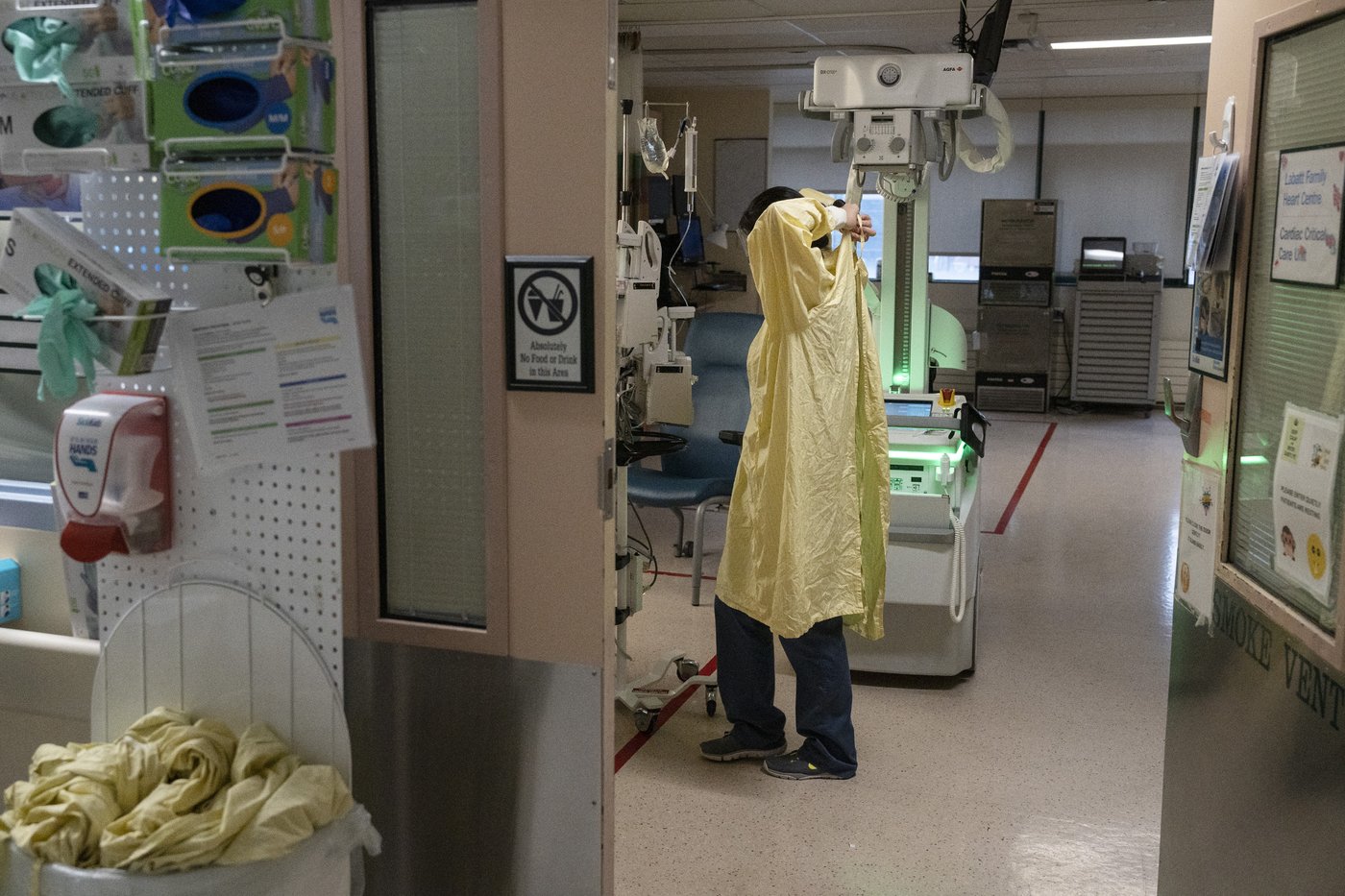Infection
A more ‘regular’ season for pediatric infections amid triple threat of RSV, flu, and COVID-19: Montreal doctor
Some health experts say the triple threat of RSV, the flu, and COVID-19 could be less severe for children this year – compared to what we saw last fall and winter. CityNews discussed this with Dr. Jesse Papenburg, Pediatric Infectious Disease Specialist and Medical Microbiologist at Montreal’s Children’s Hospital.
1. About a year ago pediatric hospitals were full of children battling these respiratory viruses. What’s changed this year to make it more of a “regular season”?
Last year was a very atypical season in terms of it starting early with RSV circulation peaking in the middle of Fall and then finishing before the beginning of winter, but followed by a very early and intense peak in influenza infections, in particular hitting young children hard. It was probably the season where we had the most hospitalizations in pediatric hospitals for influenza since the 2009 pandemic. So it was a bad season for those two respiratory viruses. With regard to COVID 19, we know, thankfully, young children are not as likely to be severely infected and require either emergency department visits or hospitalization compared to older adults. But we still did have some hospitalizations and are still having hospitalizations due to COVID-19 in our pediatric population. But what had happened was during the first year of the COVID-19 pandemic, with all the restrictions that were put into place and the near absence of RSV and influenza, there were more people in the population that were susceptible to get infected when the virus did return. And, when they did return last year, lots of people across the age spectrum got infected. But, it’s really our young children that are most vulnerable to running into complications and requiring hospitalization, either due to RSV or influenza. Hopefully now things are kind of balanced out, and with more of the population having had a recent exposure to these respiratory viruses, we’re hoping to see a more typical season in terms of the timing and in terms of the number of hospitalizations and emergency department visits.
2. It’s important to point out that the flu, COVID 19, particularly RSV, do pose some risks to children. Can you speak about that?
Absolutely. RSV is actually the leading cause of hospitalization in children under one year of age in Canada. And, we know that influenza is also an important cause of hospitalization, especially in our youngest children. But that risk can be maintained throughout the lifecycle, especially in persons with underlying medical conditions that can put them at higher risk for a complicated influenza infection. So, year in, year out, in the winter time, we’re faced with a lot of severe cases of RSV and influenza in children’s hospitals.
3. What can parents do to help protect their children as we are approaching that colder season?
We know from the COVID-19 pandemic that there are things that families can do to reduce the risk of a respiratory viral infection in their household. In particular, if you have a young child under six months of age or especially under three months of age, you want to avoid having them come into contact with somebody who’s sick. If there is already somebody who’s sick in the household, wearing a mask while you’re taking care of that young baby can also help reduce the risk of transmission, as does frequent hand washing. These are some of the basic things we can do. Then on top of that, children, as of six months of age, are eligible to get their first flu vaccine and this year, the flu vaccine is free for all residents of Quebec. I encourage families with young children, especially those under two years of age, to get themselves vaccinated and to vaccinate their children against influenza. Finally, COVID-19 vaccination is also available for children as of six months of age. And I think, children’s hospitals that’s more of the family level decision in terms of the risk that COVID-19 poses to kids, which we know is small and still not zero. Unfortunately, we don’t know which children are going to wind up having a complicated COVID-19 infection or maybe even developing long COVID types of symptoms. So I think families who are interested in that should speak to a trusted health care professional or get information on the Web from trusted websites.

